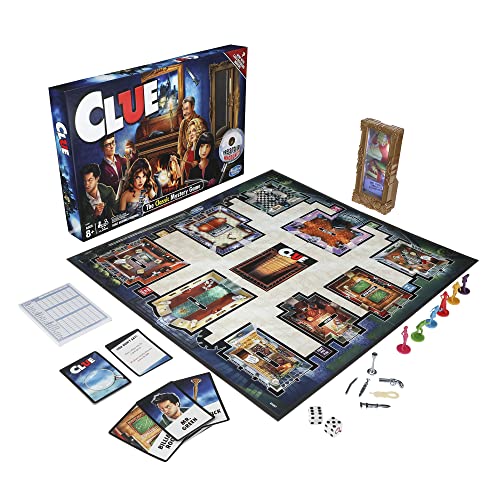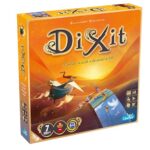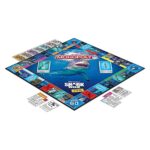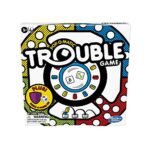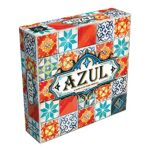If you’re a fan of mystery and deduction, then Clue is the board game you’ve been waiting for! Set in the sprawling halls of a mysterious mansion, the theme revolves around a classic whodunit scenario. Players take on the roles of eclectic characters, each a suspect in a convoluted murder mystery. Was it Colonel Mustard with the candlestick in the library, or was it Miss Scarlet with the revolver in the study? The possibilities are endless!
The genre of Clue falls under strategy and logic, where players engage in detective work, gathering clues, and eliminating suspects. What makes it unique is the mix of strategy, luck, and player interaction. You never know what your friends might discover, or what secrets they might hold back. Each game unfolds uniquely, keeping everyone on their toes!
Ideal players for Clue range from families looking for a fun night in to groups of friends eager for a little friendly competition. Typically, it appeals to ages 8 and up, making it a great choice for game nights with both kids and adults. Whether you are a detective mastermind or just looking to have a good time, this game brings everyone together for an evening of laughter and suspense.
So, if you’re curious about how to hone your sleuthing skills, the backstories of each character, or variations of gameplay, keep reading! There’s so much more to uncover in the captivating world of Clue.
What’s in the Box?
When you crack open that new board game box, you’ll find a treasure trove of game components waiting to be explored. From cards to dice, boards to tokens, each piece plays a key role in shaping the gameplay experience.
Take the classic Clue board game for example. Inside the box, you’ll discover a colorful game board, representing the rooms of the mansion where the mystery unfolds. Each player receives a set of character cards, detailing their persona and possible weapon choices.
But that’s not all! The game also includes weapon tokens like the iconic candlestick and rope, adding a touch of realism to the immersive experience. Don’t forget about the secret envelope, where the solution to the crime is hidden away, waiting to be revealed.
As you set up the game and place each component on the board, you can almost feel the suspense building. Every card you draw, every dice you roll, brings you one step closer to solving the mystery and emerging victorious.
So, next time you unbox a new game, take a moment to appreciate all the thought and detail that went into crafting each game component. They may just be pieces of cardboard and plastic, but in the world of board games, they hold the power to transport you to a whole new realm of fun and excitement.
Objective of the Game
The main goal of any board game is to have a blast while challenging your friends or family to some friendly competition. Each game has its unique objective that players aim to achieve to emerge victorious. For example, in the classic game of Clue, players need to solve the murder mystery by determining the killer, the weapon used, and the location of the crime.
To win at Clue, players must use deductive reasoning and strategic thinking to gather clues, eliminate suspects, and make accurate accusations. The first player to correctly guess the three main components of the crime wins the game!
In Monopoly, the objective is to bankrupt your opponents by buying up properties, collecting rent, and building houses and hotels. The last player remaining with money and assets is declared the winner. It’s all about making savvy deals and investments to come out on top.
Whether you’re playing a cooperative game like Pandemic, where the goal is to work together to save the world from deadly diseases, or a competitive game like Scrabble, where the objective is to score the most points by creating words with your tiles, the key to victory lies in strategy, luck, and maybe a little bit of cunning. So gather your friends, roll the dice, and may the best player win!
Setting Up the Game
Setting up a board game efficiently can make all the difference in having a smooth and enjoyable gaming experience. Follow these step-by-step instructions to get your game ready to play in no time!
1. Unboxing: Remove all components from the box and lay them out in an organized manner. Make sure you have all the necessary pieces before starting.
2. Game Board: Unfold the game board and place it in the center of the playing area. Ensure that all players have easy access to the board.
3. Player Pieces: Distribute player pieces to each player according to the game rules. Make sure each player has the correct number of pieces and that they are placed in their starting positions.
4. Cards and Tokens: Shuffle any decks of cards and place them in their designated spots on the board. Organize any tokens or markers that will be used during gameplay.
5. Dice or Spinners: If the game uses dice or spinners, place them within reach of all players. Ensure that there is enough space for rolling or spinning.
6. Rulebook: Have the rulebook handy for quick reference during gameplay. Familiarize yourself with the rules before starting to avoid confusion.
7. Setup Diagram: Some games may come with a setup diagram or instructions. Refer to this if you are unsure of where to place certain components.
By following these simple steps, you can set up your board game efficiently and get to playing in no time. Enjoy the gaming experience and may the best player win!
How to Play Clue Board Game
If you’re new to the fascinating world of Clue, the classic murder mystery board game, fret not! We’re here to guide you through the basic gameplay mechanics, player actions, and special rules that make this game so thrilling.
Basic Gameplay Mechanics: In Clue, players take on the roles of different characters, moving around the game board to gather clues and deduce the suspect, weapon, and room involved in the murder. Each player takes turns rolling the dice and moving their pawn around the board, entering different rooms to make suggestions.
Player Actions: During your turn, you can make suggestions by naming a suspect, weapon, and room. The player on your left will show you one of their cards if it matches your suggestion. Use this information to eliminate possibilities and solve the mystery before anyone else.
Special Rules or Scenarios: Clue also includes special cards like secret passages, which allow you to move secretly from one room to another, or the ability to make an accusation when you’re certain of the solution. Be careful though, as making an incorrect accusation can lead to your elimination from the game!
With these gameplay tips in mind, you’re ready to dive into the world of Clue and put your detective skills to the test. Enjoy the thrill of solving the mystery and outsmarting your fellow players in this suspenseful board game adventure!## Scoring and Winning the Game
In Clue, the player who correctly solves the mystery first is the winner! Each player starts with a detective notepad to track clues. Players earn points by making correct accusations and deducting points for wrong ones. The game board also has secret passages that give players strategic shortcuts.
To score points, make an accusation by stating the suspect, weapon, and room. Another player must then show you one card if it’s in their hand. If nobody can, the game continues. If you think you know the answer, you can make an accusation. But be careful – if you’re wrong, you’re out!
Example scenario: Let’s say you accuse Professor Plum with the candlestick in the study. If another player shows you the card for Professor Plum, you gain 10 points. If your guess was wrong, you lose 5 points. Listen and watch other players to gather information for your next move.
The player who correctly guesses the suspect, weapon, and room wins the game. Sharpen your deduction skills and strategy to outwit your opponents and emerge as the master detective in Clue!
Tips and Strategies for Clue Board Game
So you’ve gathered your friends for a thrilling game of Clue, but now the real challenge begins – solving the mystery before anyone else! Whether you’re a beginner or a seasoned player, these tips and strategies will help you up your game and emerge victorious from the gripping world of Clue.
1. Pay attention to your opponents’ moves: Keep a keen eye on what cards other players are showing or asking about. This can give you valuable insight into which cards they hold and help you deduce the solution faster.
2. Make logical deductions: Utilize the process of elimination to narrow down the possible combinations of suspects, weapons, and rooms. Keep track of the information that has been revealed and use it strategically to make informed guesses.
3. Bluffing and misdirection: Don’t be afraid to throw off your opponents with a well-timed bluff. By asking about a card you already hold or showing a card you don’t, you can lead others astray and gain the upper hand in the investigation.
4. Avoid tunnel vision: While it’s important to focus on your own clues, be sure to consider the big picture. Don’t get so fixated on one suspect, weapon, or room that you overlook other possibilities. Stay flexible and open-minded in your deductive process.
With these strategies in your arsenal, you’ll be well-equipped to tackle the mystery of Clue with confidence and skill. Remember, in the world of Clue, anything is possible – but with the right tactics, victory can be yours!
Variations and Expansions
Looking to add some new twists and turns to your Clue board game experience? Consider diving into the world of expansions and variations! Official expansions for Clue, such as “Clue: Discover the Secrets,” can bring fresh excitement to your gameplay with new characters, rooms, and weapons to keep you guessing.
If you’re feeling creative, why not come up with your own house rules to shake things up? Try adding a time limit to each round, allowing players to make accusations even if they’re not in a room, or mixing up the traditional Clue formula by introducing new ways to earn clues.
For a completely different take on the classic game, explore alternative ways to play Clue. Consider playing in teams, where players must work together to solve the mystery, or try a speed round where decisions must be made quickly. You could even create your own detective-themed challenges or mini-games to add even more depth to your Clue experience.
Whatever path you choose, expanding and exploring new ways to play Clue can breathe fresh life into this beloved board game classic. So gather your friends and family, set up the board, and get ready to solve the mystery in style!
Frequently Asked Questions (FAQs)
Q: How long does Clue board game take to play?
A: The average game of Clue typically takes around 45 minutes to an hour to play, but this can vary depending on the number of players and how quickly they make their deductions.
Q: Can Clue board game be played solo?
A: While Clue is best enjoyed with multiple players to add to the mystery and competition, there are variations and online versions available that allow for solo play.
Q: Do you need to have a strategy to win at Clue?
A: Yes, having a strategy can greatly improve your chances of winning at Clue. It’s important to pay attention to the clues given throughout the game, make logical deductions, and strategically ask questions to narrow down possibilities.
Q: Are there different versions of Clue available?
A: Yes, there are various editions of Clue featuring different themes and twists on the classic gameplay. Some popular versions include Harry Potter Clue, The Simpsons Clue, and Clue FX.
Q: Can children play Clue board game?
A: While the game is recommended for ages 8 and up, younger children can also enjoy playing Clue with some guidance and assistance from older players.
Q: What happens if two players make an accusation at the same time?
A: In the event that two players make an accusation at the same time, the player who is closest to the left of the player who made the accusation goes first. If the first player correctly solves the mystery, the game ends, and the other player has a chance to solve it next.
Final Thoughts & Where To Buy
Are you ready to step into the world of mystery and intrigue? The Clue board game is not just a game; it’s an exhilarating journey through a mansion filled with suspense and deduction! It’s perfect for family game nights, parties, or cozy evenings with friends. The appeal lies in its clever mix of strategy and chance, as players race to be the first to uncover the truth behind the dastardly crime!
So, where can you snag your own copy of this classic? We highly recommend you purchase it on Amazon for the best prices while enjoying safe and secure buying and shipping. Plus, with their reliable customer service, you can buy with confidence!
Here’s a quick summary of why you should play the Clue board game:
| Appeal of Clue | Reasons to Play |
|---|---|
| Engaging Mystery | Exercise your deduction skills |
| Shared Experience | Perfect for socializing with friends |
| Timeless Fun | A classic that never gets old! |
We’d love to hear your experiences with the game! What are your favorite strategies? Feel free to share your thoughts in the comments below! And for those looking to dive deeper into the world of board games, check out our related guides and reviews, including the best board games like Clue board game and insights on why play Clue board game. Let’s keep the mystery alive together!
Similar Games Like Clue Board Game







If you enjoy the thrilling mystery-solving and strategic reasoning elements of Clue, you’re in for a treat! There are plenty of other captivating games that can satisfy your craving for deduction, intrigue, and fun. Here are some fantastic alternatives that will keep you guessing and engaged:
- Guess Who? – A classic two-player game where players ask yes or no questions to deduce their opponent’s character.
- Mysterium – A cooperative game where players act as psychics trying to interpret the visions of a ghost to solve a murder mystery.
- Scotland Yard – A thrilling chase game where one player takes on the role of Mr. X, evading capture by detectives on the streets of London.
- Detective: A Modern Crime Board Game – A narrative-driven game that immerses players in a world of crime-solving, using real-world resources to track down suspects.
- Spyfall – A social deduction game where players must figure out who among them is the spy, all while keeping the location a secret.
- One Night Ultimate Werewolf – A fast-paced game of hidden roles and deception where players must determine who the werewolves are before time runs out.
- Letters from Whitechapel – A semi-cooperative game where players attempt to track down Jack the Ripper as he attempts to escape after committing his crimes.
- Secret Hitler – Set in pre-World War II Germany, players must deduce the identity of Hitler and the secret fascists among them before it’s too late.
- Chronicles of Crime – A thrilling blend of VR and board game mechanics that lets players investigate crime scenes and gather clues with their smartphones.
Whether you’re diving into the mysterious shadows of Mysterium or racing against detectives in Scotland Yard, each of these games offers its own unique twist on the detective genre. Perfect for those cozy game nights with friends or family, these titles will undoubtedly keep the excitement rolling! So grab your magnifying glass, and let’s solve some mysteries together!


